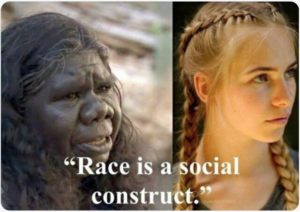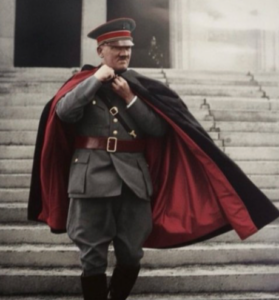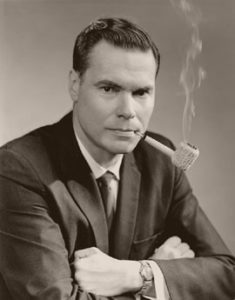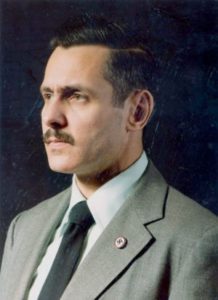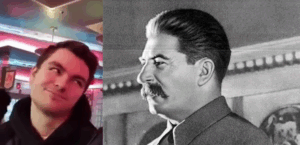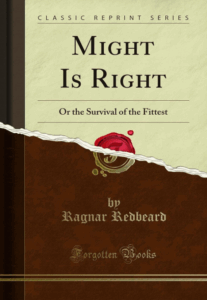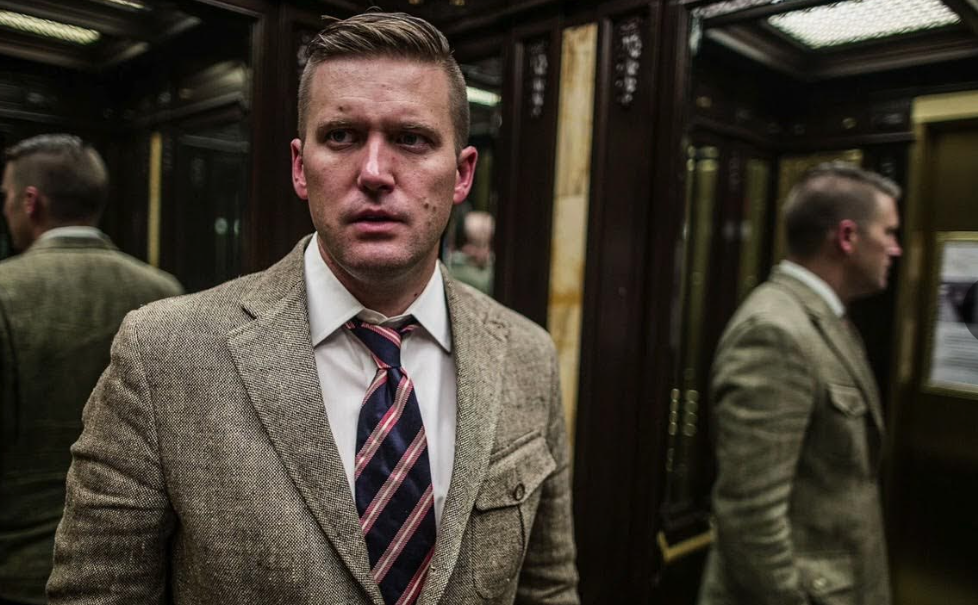Author: C .T.
Lukkassen
Yesterday, Sid Lukkassen posted the following on X:
What Nick Fuentes is trying to do, with his “Hitler is cool” pose, is to break The Final Seal. And that final seal is the lynchpin that holds the contemporary morality of the West together. “Hitler is evil” is The Final Seal, because it is literally more important to the establishment than voting rights for women, the climate-narrative and “Muslims are peaceful”.
Because once this seal is broken, it is possible again to conceptualize that White/European ethnic groups are worthy of self-esteem and pride in their achievements; that they have interests specific to them as a group. This concept of course defies globalism, technocracy and multiculturalism. All this is locked away behind “Hitler is Evil”. Once this seal is broken, the West will undergo a Copernican revolution—it will be what Auguste Comte and Michel Houellebecq call a “metaphysical upheaval”, in a moral and spiritual sense similar to the Crucifixion of Christ. A complete re-orientation of values.
Well, well! This is precisely what we’ve been saying on this site for a long time! Although Nick Fuentes is a greenhorn who “admires Stalin much more than Hitler,” as he confessed in his podcast monologue the same day as his interview with Piers Morgan, what Nick said about Hitler in that discussion—that he “was cool”—has shaken the Aryan collective unconscious, which is what interests us.
It’s true that I’ve said that the best mind the United States has produced is that of William Pierce. But Pierce made a colossal mistake by refusing to use Hitler as a central figure when he left Lincoln Rockwell’s organization. While Rockwell didn’t have Pierce’s intelligence, he was more noble. And the words of his successor, Matt Koehl, should be engraved in marble and in the hearts of every American Aryan who wants this new Copernican revolution to take place: “A race that rejects Him will surely perish.”
Greg Johnson has said that Nick doesn’t read books. If the Groypers could develop even a fraction of the severitas and gravitas required to save their race from extinction, they would read the abridged edition of The Gulag Archipelago that’s available on the market. And better yet: in addition to reading Solzhenitsyn, they would also read Hellstorm, which details the atrocities that Stalin’s willing executioners (many of them not Russians but Asian hordes) committed against defenceless Germans, including the mass rape of German women.
That’s why I so desperately want the dollar to collapse: so that the Zoomers will finally mature. Echoing the 4 words, without the necessary suffering (something both Revilo Oliver and Pierce foresaw), Americans will remain in “happy mode”: not only Nick and his Groypers, but a large part of the racial right. Before the collapse, only this kind of reading could mature one of these Zoomers who are celebrating what happened the other day on Morgan’s show. They’ve taken a baby step. Granted. Now, with these readings, they must continue crossing the Rubicon.
I think this is a good time to remember our dear friend Tom Goodrich, the author of Hellstorm: The Death of Nazi Germany, who died a year ago (exactly, on December 4th).
Greenhorn
After posting this entry, I will delete the previous one, which I had titled “Groyped!”, and move it to the comments section of this post.
The reason for this change is what Nick Fuentes said yesterday: that he admired Stalin much more than Hitler because he had won the war.
That line of reasoning is as stupid as saying we should admire the House of Constantine because it won the war against pagan Rome. I realised this twisted way of thinking ever since I read William Pierce’s history of the white race: We admire the figures of Alexander the Great and Julius Caesar without realising the immense damage they did to the white race. Except Emperor Julian, the same could be said of the emperors of the House of Constantine, who destroyed the Aryan Gods to impose the god of the Jews on us: something that literally transvalued our values to the values of the Jews.
Nick Fuentes is a greenhorn, and his perpetual immaturity reflects the fact that Americans haven’t suffered the way Revilo Oliver said they should before a true paradigm shift takes place. That gravitas, like that of the Republican Romans before Caesar’s actions started the Melting Pot empire, can only develop years after the dollar collapses and American society descends into utter chaos. We badly need the fall of this new Rome.
Until that happens, we will continue defending the Hitlerian faith on this site, even though very few people listen to me in the desert where I preach.
Depression
Many years ago, I think it was 2007, before I discovered the white nationalist forums that split my intellectual life in twain, I used to interact with Alice Miller fans (before 2010, I dedicated myself body and soul to writing about the devastating effects of parental abuse on children). A Dutchman told me that my depression stemmed from unprocessed pain from my past and quoted Miller.
His explanation seemed misguided and simplistic, since it was obvious that the lack of a degree, and consequently a job (in the Third World it’s very difficult to prosper without a university degree, unless you inherit a family business), was what was bothering me.
Now I’m still unemployed, but at least I’ve finally understood not only what happened in my family, which took me decades to write about. (Unlike a novel, I had to wait until both my parents died, and my only non-traitorous sister also died, to finish writing the last page.) At the same time, I understood another depressing factor: the reason for the darkest hour in the West, thanks to the authors who enlightened me, whose texts can be read on this site.
Enlightenment on matters of family tragedy, or on the situation of white man’s ethno-suicide, represents only a couple of steps toward recovering one’s spirits. This morning I was answering an email from a visitor to this blog, in which I said that what we need is a kind of Spartan syssitia in which, through daily podcasts, we communicate with young Aryans in a way that is infinitely better than what Nick Fuentes does, because we are the National Socialists of the 21st century.
It seems absurd to me that those of us who want to do something effective in the world aren’t at least living on the same block to eat the three meals together, as the Spartan soldiers did. It’s impossible to recover our spirits if we don’t get together!
It’s true that a syssitia like the one I’m proposing is missing something fundamental. In Sparta, every man was expected to marry and procreate (incidentally, even after marriage the soldier ate with other soldiers to solidify the Männerbund). But given that the laws and culture of recent decades have completely corrupted women, for the moment what I propose is simply to meet like those Parisian salons before the Revolution. And although we couldn’t say anything illegal on the podcast, we would prepare young people to think in a revolutionary way. Women would come later: when, thanks to the Revolution and the laws of the Aryan state, we have already transvalued values.
Lately, I’ve been reposting images like this on X:
What’s hard for young people is waking up to the fact that this prize, marriage to a real woman—unlike the Gomorrahite freaks of today—could only be accomplished after the Revolution. Before then, it is impossible given the fiercely ethno-suicidal nature of Western culture and its laws against us. But the first step, I insist, is for this vanguard of priests of the sacred words to live under the same roof, or on the same block, to share meals and transmit our radical message to the dispossessed youth.
It will be impossible to get depressed under those conditions…
Christianity
and the survival of the West, 4
by Revilo Oliver (1973)
Chapter Four THE PREDICTABLE FUTURE
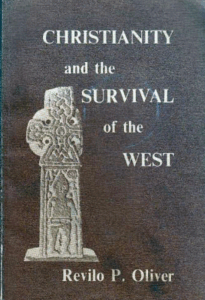 Christendom is no longer Christendom. The faith that Christ was literally the Son of God, which dominated the Western world for fifteen centuries, and effectively united all the men of our race for ten, has become the faith of a minority. […]
Christendom is no longer Christendom. The faith that Christ was literally the Son of God, which dominated the Western world for fifteen centuries, and effectively united all the men of our race for ten, has become the faith of a minority. […]
One common ground for hope is, at best, uncertain. We Americans, thanks to our folly, will soon undergo a considerable amount of physical suffering: domestic violence, economic collapse, probably some starvation, quite possibly conquest by foreign invaders and resident revolutionists. It is true that, as history shows, such afflictions usually induce a revival of religion, and many Christians expect such an effect here. That is not likely in the future that we can foresee. For one thing, the historical effect requires an unremitting and prolonged suffering—thirty years or more. The Crusade to Save the Soviet in 1939-1945 inflicted great suffering on many nations of Europe, especially Germany and Poland, but produced no significant religious revival. Secondly, if there should be such an effect, it probably would not benefit Christianity. The Protestant Churches as a whole have long been disgraced by the pinks and punks of the National Council. The Catholic Church is now committing suicide by repudiating its own doctrines and burlesquing its traditions. In the eyes of non-believers now, the religion has been compromised by the antics of the greater part of the professional clergy, and despite the admirable loyalty of “traditionalist” and “fundamentalist” minorities, it is likely that the coming disasters will—unjustly, but understandably—make Christianity seem a religion that failed. Thus any revival of religiosity will benefit cults that will have the attraction of novelty and a new “revelation,” possibly including some doctrine of metempsychosis.
We are left, therefore, with the present situation and very little hope that it will or can be soon altered. So we had better reckon with it, whatever our personal desires or convictions.
The visible consequences of the withering of our religion are enormous, overshadowing, frightening. Christianity was much more than a religion comparable to the religion of Osiris in early Egypt, the worship of the Olympian gods, the Orphic mysteries, or Mithraism. Unlike those cults in their time and place, Christianity for a large part of our history was the whole formal basis of our entire culture, the absolute from which were deduced our moral codes, our laws, and our political systems; it largely informed our art, inspired our literature, animated our music, and sustained our men of science. The void that has been left is so great that few can peer into the dark abyss without vertigo. […]
If Christ was not literally the Son of God, the entire morality on which our civilization was consciously based for so long seems to collapse, to vanish as an illusion, to be as unfounded as the old nation that the earth was flat. [Editor's Note: This gives me carte blanche for my exterminationist fantasies.] And this apparent dissolution includes all of the ancient Indo-European morality that guided our peoples in the many centuries that preceded our adoption of Christianity.[1] That is obviously what is happening—has happened today, when we witness everywhere tacit and explicit repudiation of all morality—not only Christian teaching, but the antecedent and basic morality without which civilization is flatly impossible. And, what is even more disheartening, there seems to be no basis left for any morality.
For a long time, men, except a few romantic and evangelical atheists, have agreed that a viable morality must be based on a religious faith. Hesiod, whom some scholars place in the ninth century B.C., warned the judges of his day that Zeus had 30,000 invisible and immortal observers who go through the whole earth and report the evil deeds of men. A discerning correspondent, whose letter reached me yesterday, remarks that “unfortunately, most people need to feel that they are watched by a superhuman power.”
For Aristotle, Plato, and Cicero, civilized society must be based on a generally accepted and uniform religious faith. And, with few exceptions, the thoughtful non-Christians of our world have held the same opinion. Renan, for example, took leave of Christianity with elegiac sadness and deep apprehension: “What is ominous is that we cannot foresee for the future any means of giving men a code of conduct that they will generally accept… I frankly admit that I cannot imagine how it will be possible to restore, without the ancient illusions, the foundations of a noble and serene life.”
On a quite different level, the pragmatic and cynical Augustus believed religion the indispensable basis of political stability, and many rulers and statesmen, before him and after him, had the same conviction. And some of the world’s most acute minds have drawn the conclusions that Machiavelli, perhaps, stated most bluntly:
Principalities and republics that would save themselves from decadence must above all other things keep uncorrupted the ceremonies of their religion, and hold it always in veneration; for there can be no greater symptom of the ruin of a state than to see divine rites held in contempt… They should therefore use every opportunity to foster and augment their religion, even though they perceive it to be false; and the more prudent they are and the more they know about natural phenomena, the greater their obligation to do this.
It is now too late to heed Machiavelli ‘s warning. The disaster that he apprehended has come upon us.
It is vain to dream of a religion to replace Christianity. Comte’s notion of a “Religion of Humanity,” whereby congregations would throng temples to venerate Henry Ford, Thomas Edison, and Werner von Braun as “benefactors,” was one of the ideas that occurred to him when he was out of a straight-jacket, but it should have suggested to his friends and keepers the need to hustle him into one. True, there have been serious proposals by eminently sane men, who, however, seem to forget that a religion must be based on faith, not speculation or psychological peculiarities. Captain Ludovici is a highly intelligent and earnest man, and when he wrote his Religion for Infidels (1961), he must have known that his “rational religion” could appeal only to a few, and had no chance whatsoever of meeting our society’s need for a unifying faith.
If the faith of Christendom was an error, alien gods can command no true piety—not even in the little circles where they may enjoy a passing vogue. The Oriental cults that make wealthy dowagers beam and write cheques are not for men. Christianity is irreplaceable.
___________
[1] Christianity, of course, introduced very little that was novel in the practical ethics governing human conduct in society, most of which were not only traditional in our race but were common to most civilized societies, including the oldest of which we have adequate knowledge. (Clergymen who impudently talk of “Judaeo-Christian ethics” try to give the impression that the prohibition of theft, adultery, etc. in the Ten Commandments was some kind of dazzling and miraculous invention, but if they were honest they would speak of “Sumerian-Christian ethics” in that connection.) About the only element that can fairly be called a Christian innovation was the great emphasis on forgiveness as a duty rather than an act of unnecessary generosity. (Its doctrine of rewards and punishments after death tended to enforce observance of the whole moral code, but that is another matter.) The historical antecedents, however, will not help us now, for our religion was so long regarded as the one and only basis for morality and the unique source of all right conduct that the earlier traditions have vanished except insofar as we still instinctively regard certain actions as dishonorable. Even those feelings, however, may be consciously repressed as “relics of superstition” by persons who have reacted strongly against the religion and are proud of having “emancipated” themselves from it.
Might is right, 17
Jewish books are for the Jews, And Jew Messiahs too.
But if you’re not of Jewish blood, How can they be for you?
To make an Idol of a book, Is poison for the brain;
A dying God upon a cross
Is reason gone insane.
Beware of all the Holy books And all the creeds and schools,
And every law that man has made And all the golden rules.
‘Laws’ and ‘rules’ imposed on you From days of old renown,
Are not intended for your ‘good’ But for your crushing down.
Then dare to rend the chains that bind And to yourself be true,
Dare to liberate your mind, From all things, old and new.
C Q
“The Christian Question, definitively: I think it’s the most central issue of our time right now…” said Adam Green, and Richard Spencer agrees (video from three months ago).
That is precisely why I find it magnificent that The Fair Race is available again in print.
The tragedy of National Socialism is that Hitler couldn’t write a manifesto because he couldn’t criticise Christianity as openly as Himmler did in private.
In other words, there is no public National Socialist manifesto, only private ones like the article for the SS published in The Fair Race (Main Kampf was written for neo-normies).
That wouldn’t have mattered if Hitler had won the war. But since he lost, we can no longer disguise ourselves publicly as Hitler did (to paraphrase the New Testament, he spoke to the masses in parables but explained everything to his apostles). The time has come for the esoteric aspect of National Socialism to become exoteric. This is the only way to replace the Jewish archetype that has seized the collective unconscious of white men with the Aryan archetype.
In this, Richard Spencer is wrong. Using the caduceus metaphor he used in the video, I would modify it by claiming that one serpent of the caduceus is heading towards the wings (the Aryan), but the other wants to take us down to the earth (the Jewish one): that is, to say goodbye to our recently acquired feathers!
Reprinted!
Regarding what I just said in the comments section (very harsh words), to achieve this, the Aryan must read the books mentioned in our featured article, preferably in print.
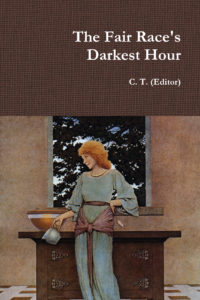 A visitor to this site has already uploaded a Lulu Press edition of The Fair Race’s Darkest Hour to his platform, which can be purchased here. (That book and others used to be on my account, but they were banned, and now Lulu only allows me to publish my autobiographical books.)
A visitor to this site has already uploaded a Lulu Press edition of The Fair Race’s Darkest Hour to his platform, which can be purchased here. (That book and others used to be on my account, but they were banned, and now Lulu only allows me to publish my autobiographical books.)
Thank you, John, for making this book available again!
Ultimately,
Nick Fuentes is just a neo-normie, as can be seen in his recent interview with Crowder.
Unless a Groyper can distance himself miles away from Fuentes, to our side of the psychological Rubicon, there’s no point in wasting our time with him. Only after a large-scale civilisational collapse will we be able to preach our faith. Until then, we can only preach in the desert.
Regarding what I said last month about Fuentes, I take it back. As the blogger Black Pilled has demonstrated, we no longer have time to infiltrate institutions as Nick recommends. See here and here but skip the first ten minutes.
________
Postscript: See also my November 25 article, “Groyper.”
Goner
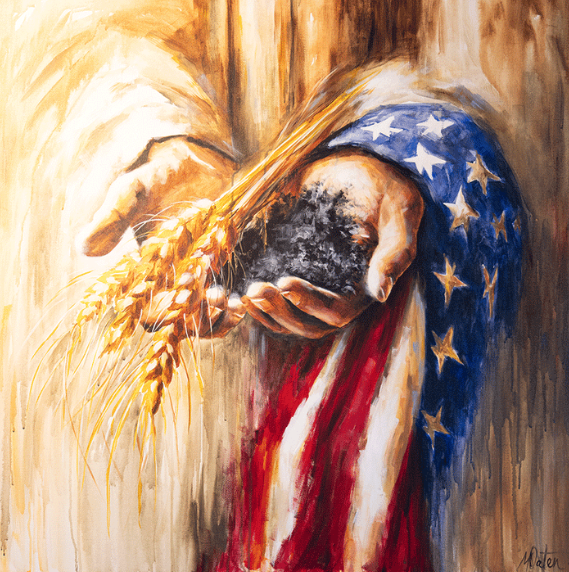
Heart of America: The Blessings of Repentance, painted at the “Crossroads of America” event at Goshen, Indiana.
Trying to imagine America without Christianity is like trying to imagine Nazi Germany without Hitler.
Just as did Pierce and Rockwell, Linder wanted an America with Americans other than they are. This attempt to reform people who don’t want to be reformed—to save people who don’t want to be saved—is the strategic weakness that caused all three of them to fail [emphasis by Ed.].
No amount of clever typing is ever going to work. In the current environment, building a mass movement like NSDAP is impossible.
That’s why I say that inducing a permanent collapse of the technological system is a better way to achieve the goal of saving the white race. It’s something that could be accomplished by only a small group of fanatics, or maybe even a lone genius. The system is vulnerable to attack in thousands of ways. I sketched out one possible way [elsewhere].
